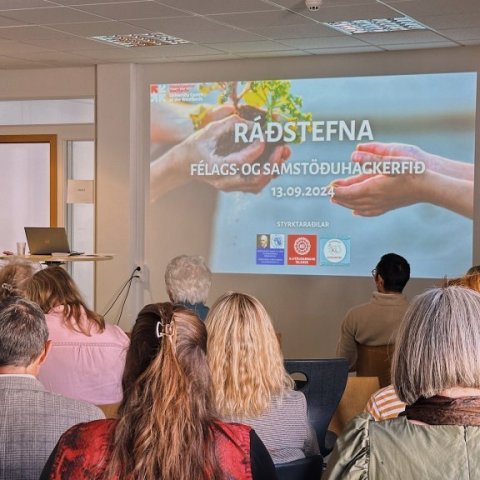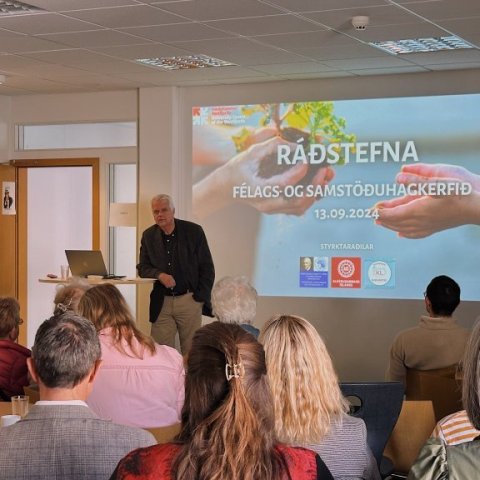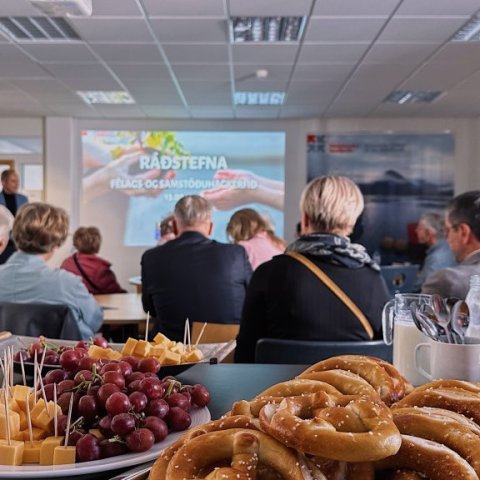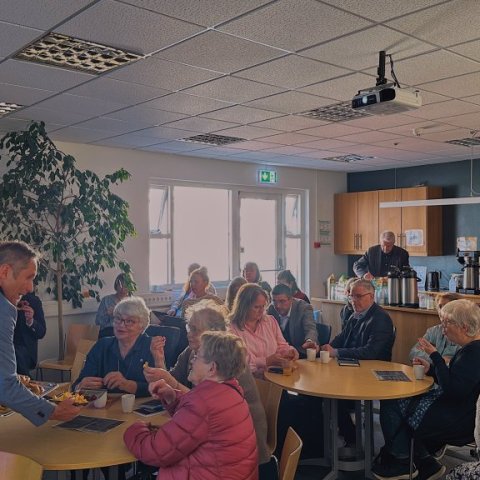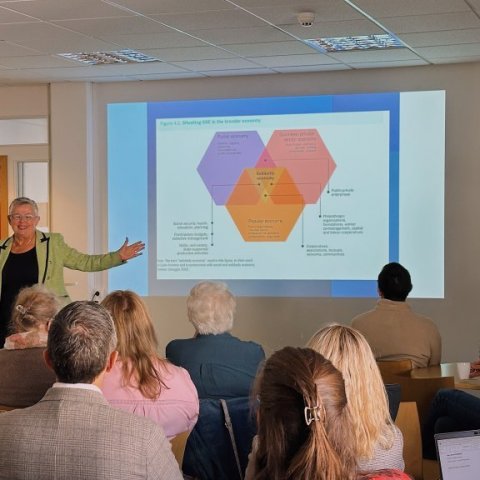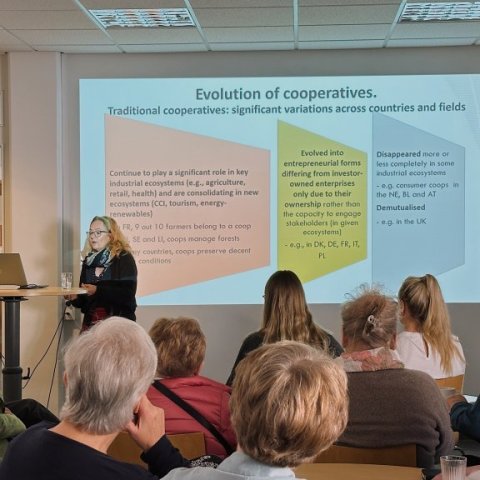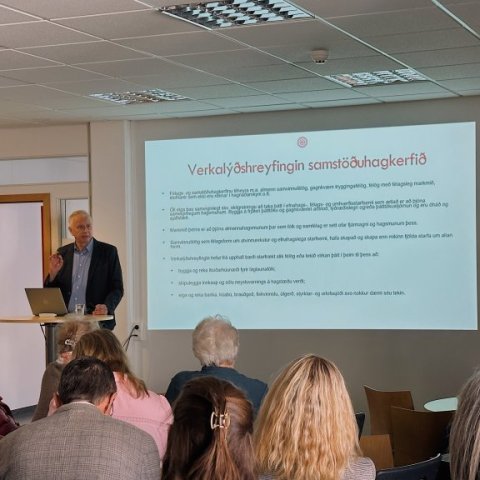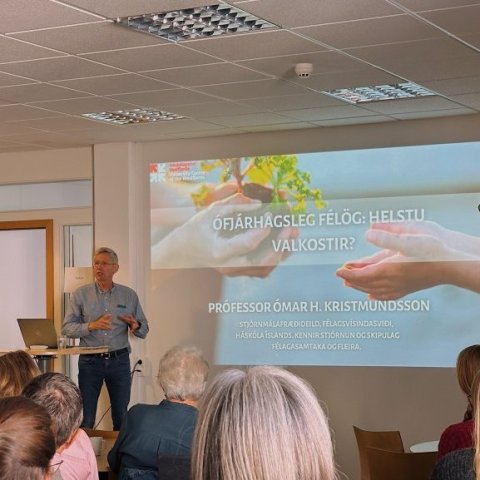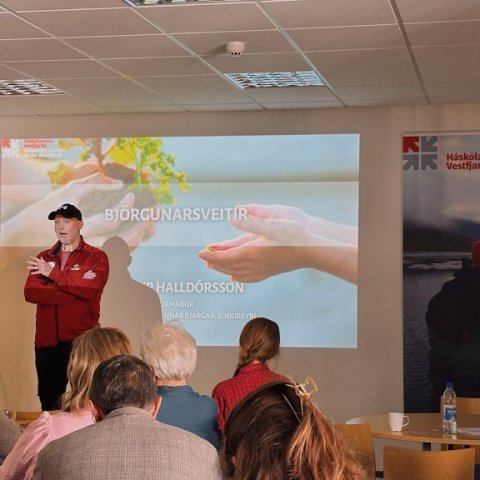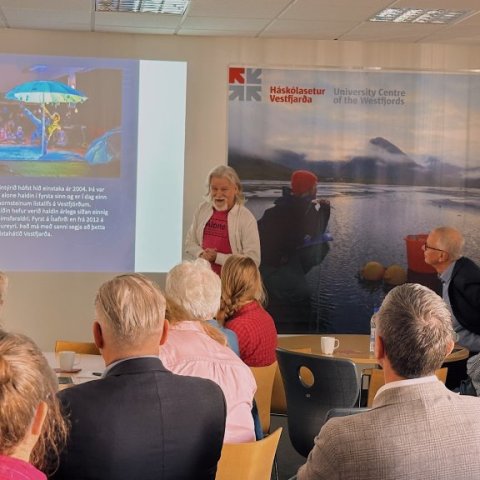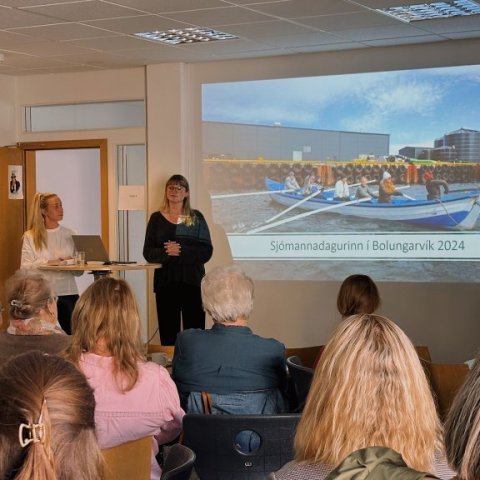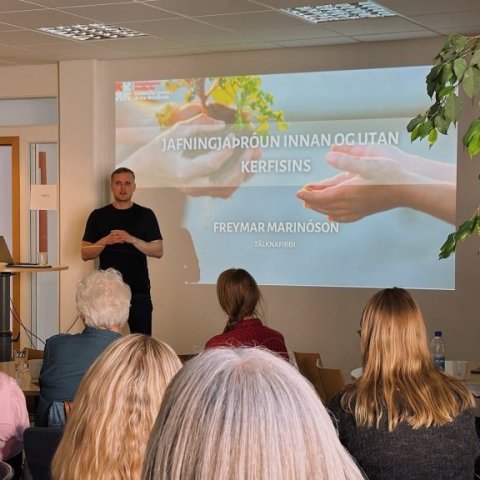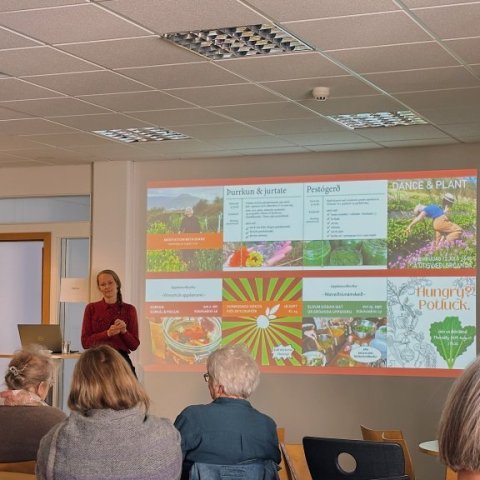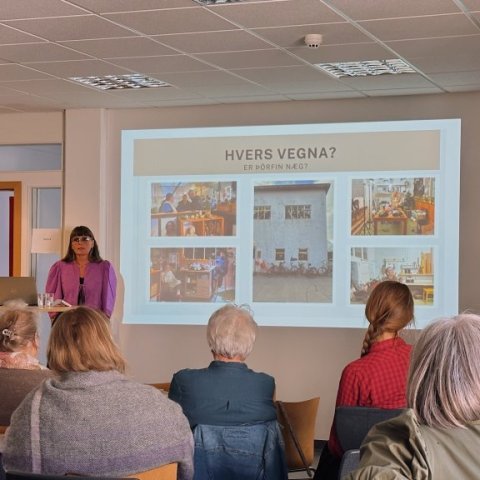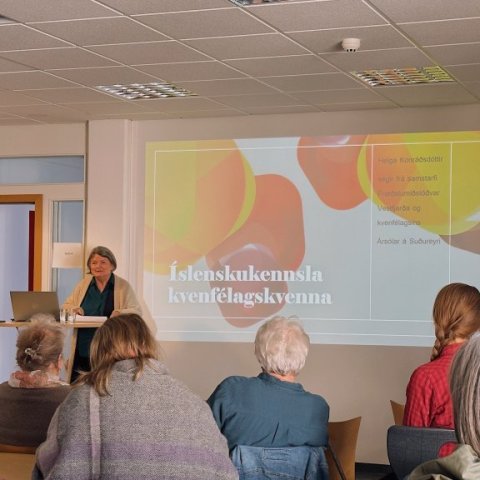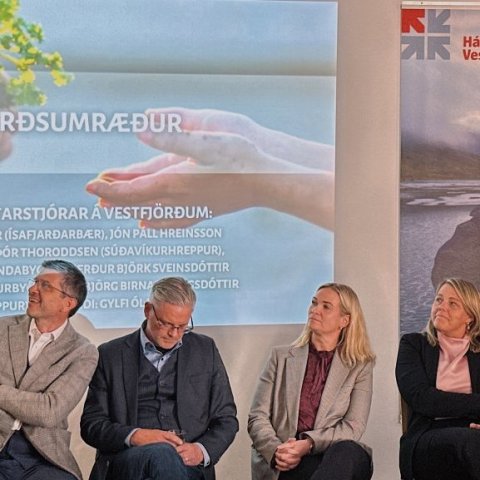Conference at UW: The Social & Solidarity Economy
On Friday, September 13th, a conference on the social and solidarity economy took place at the University Centre of the Westfjords (UW). Over 50 people attended the conference, and the lectures were as interesting as they were diverse. The conference began with light refreshments provided by UW, and Peter Weiss, the director, welcomed the attendees and gave an opening address. He also announced the absence of the President of Iceland, Halla Tómasdóttir, who was unable to attend due to a funeral.
The conference was then taken over by its organizer, Valdimar J. Halldórsson. He spoke about the background of the conference and educated the attendees on what the social and solidarity economy is. He raised questions about what our society would be like without free associations, rescue teams, women’s associations, sports clubs, and various volunteer organizations. He then formally opened the conference and welcomed the first speaker.
The first presentation was by Professor Linda Lundgaard Andersen, head of the Centre for Social Sustainability at Roskilde University in Denmark. She discussed the social and solidarity economy in Danish rural areas. Following her was Dr. Giulia Galera, a researcher at the European Research Institute for Cooperative and Social Enterprises (Euricse) at Trento University in Italy. Her presentation was titled “Cooperatives Today and in the Future.” Both Professor Linda and Dr. Giulia delivered their talks in English, but all other presentations were in Icelandic. They both received numerous questions, and the discussions that followed their lectures were engaging.
Next up was Magnús M. Norðdal, an expert in international and labor market affairs at ASÍ. His presentation was titled “The Social and Solidarity Economy and the Creation of Decent Jobs.” Professor Ómar H. Kristmundsson, from the the University of Iceland, followed Magnús with a talk titled “Non-Financial Associations: Main Options?” Both Magnús and Ómar received many interesting questions from the audience.
After a coffee break, there were presentations from organizations and associations in the Westfjords that are part of the social and solidarity economy. Members and leaders of these organizations described their groups and their activities. First was Ólafur Halldórsson, the chairman of the Björg rescue team in Suðureyri. He spoke in general about the activities of rescue teams and also specifically about his work with the Björg rescue team. Rescue teams are perhaps one of the most well-known examples of volunteer organizations operating within the social and solidarity economy in Iceland. Following Ólafur, was Elfar Logi Hannesson with a presentation about the Act Alone theater festival, which many may be familiar with. He talked about how it was established and the future plans for the festival. The festival is free for audiences and is not run for profit. Next were Katrín Ugla Kristjánsdóttir and Rebekka Líf Karlsdóttir from the Vesturbros dental clinic in Bolungarvík, who introduced a so-called community fund where part of the clinic’s income will go into a fund, which will be used for the community. Freymar Marinóson followed with a presentation titled “Peer Development Within and Outside the System,” discussing peer education.
After another sunny coffee break, during which many conference attendees stepped outside for coffee on the balcony, the next round of presentations began. Hildur Dagbjört Arnardóttir introduced the work of Gróandi in Ísafjörður, which is a cultivation area. She talked about the methods she has used to engage the community in growing vegetables together and new fundraising approaches. Following her was Heiðrún Björk Jóhannesdóttir with a presentation about Netagerðin, creative workspaces in the old fish net factory in Ísafjörður. She discussed how the workspaces came into being and what life is like in Netagerðin, which houses a diverse range of creative workspaces. Next, Helga Konráðsdóttir spoke about Icelandic language teaching for foreigners, a volunteer activity by the women’s association in Suðureyri. Today, several Icelandic teachers were originally students in the courses.
Overall, all these organizations and associations in the Westfjords that belong to the social and solidarity economy were very well received at the conference and got many questions and interesting discussions at the end of each presentation, and it is clear that there is a lot of interest in their activities.
After all the presentations were completed, a panel discussion took place with the mayors and municipal leaders of the Westfjords. The attendees were: Arna Lára Jónsdóttir (Ísafjarðarbær), Jón Páll Hreinsson (Bolungarvík), Þorgeir Pálsson (Strandabyggð), and Gerður Björk Sveinsdóttir (Tálknafjörður and Vesturbyggð). The moderator was Gylfi Ólafsson. They answered questions from the audience and from the conference speakers. The discussions were very lively.
The aim of the conference was to raise public and municipal attention to the importance and diverse activities of associations, institutions, and individuals within the “Social and Solidarity Economy” for the communities in the Westfjords. With good participation from the conference attendees and having mayors and municipal leaders from the Westfjords not only present at the conference but also actively participating in the panel discussion, we are truly many steps closer to achieving this goal after this conference. UW would like to thank all the conference attendees, speakers, and panel guests for their presence and give special thanks to Valdimar J. Halldórsson for his work with the conference.
Photos from the conference:

